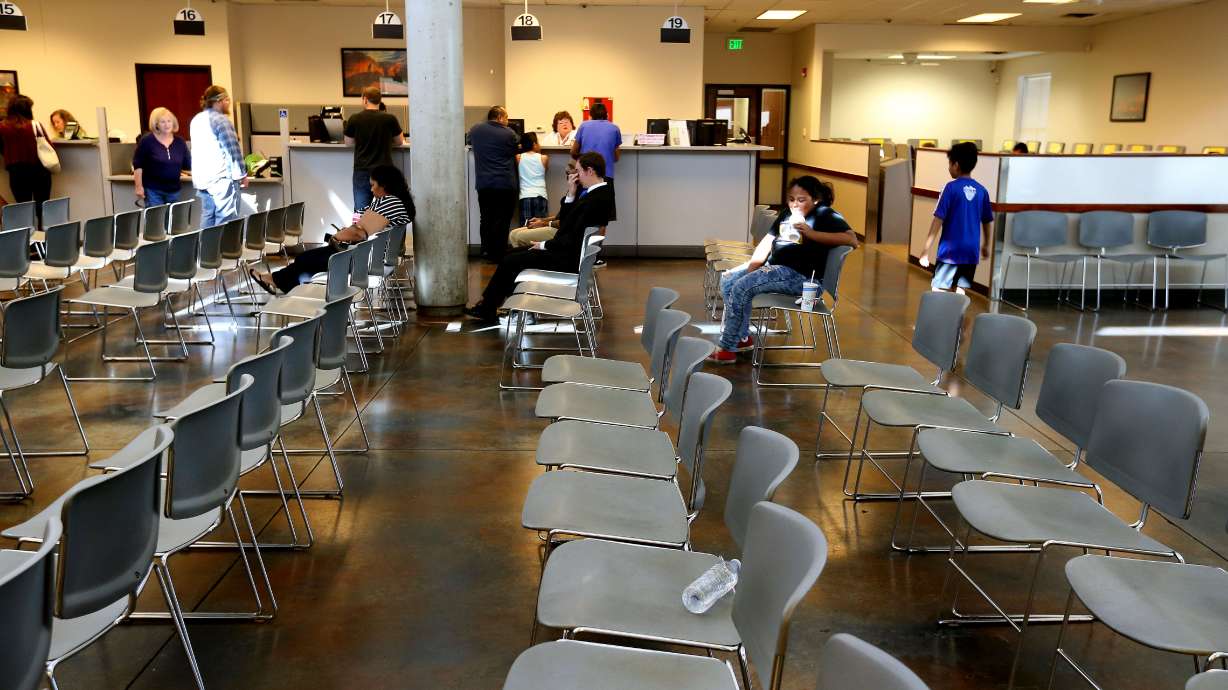Estimated read time: 4-5 minutes
This archived news story is available only for your personal, non-commercial use. Information in the story may be outdated or superseded by additional information. Reading or replaying the story in its archived form does not constitute a republication of the story.
SALT LAKE CITY — Do you hate having to renew your driver’s license? Starting New Year’s Day, the length between having to renew your license will be extended by three years. While that comes with a fee increase, it will give Utahns fewer trips to renew their license in the long run.
The new time length will go into effect for Utah drivers once they renew their current license, said Utah Sen. Wayne Harper, R-Taylorsville, who was the floor sponsor for the bill that passed during the 2019 legislative session. That means if someone renewed their license last month, they will have to renew their license in December 2024; whereas, someone who renews their license this month won’t have to renew it again until January 2028.
The change also applies to state-issued identification cards. All current license and identification renewal deadlines still apply, Harper added. The new deadline lengths also come with a caveat. Harper explained that there might be penalties on a license, such as a DUI, that would require that person to come in earlier.
In addition, those with low point deductions from their license will be able to renew their license online, while drivers with more penalties may have to renew in person to take tests, Harper said.
As a part of the changes, the original license application and license renewal fees will be raised from $32 to $52 as an adjustment to the longer renewal time period. The renewal fees for drivers 65 or older will rise from $17 to $27. Motorcycle application and renewal fees will increase from $11 to $18, and the application and renewal fees for taxicab endorsements jump from $9 to $14.
There were no marked changes to the state's identification card prices, which cost $23 for the first issue and renewal, according to the Utah Department of Public Safety.
“The fees go through and pay for the operations of the driver’s license divisions as well as highway patrol and law enforcement’s review and inspections,” Harper said. “Basically it funds the operations for all the driver’s licenses so the (state) general fund does not subsidize it.”
That’s one of 10 changes to Utah’s books at the beginning of 2020.
The new laws going into effect are:
- HB24: Gives Utahns a broader right to appeal property taxes and expands the armed forces property tax exemption.
- HB105: Requires non-Utah residents to have a permit to ride off-highway vehicles in the state. The fee for a permit is $30. More information about the new law can be found here.
- HB231: Makes changes to the aggregate taxable value of personal property that qualifies for personal property tax exemption, adds some new tax exemptions on business tangible personal property and makes changes to filing requirements for a person who qualifies for certain tax exemptions.
- HB294: Changes the renewal length of driver’s licenses and identification cards from 5 to 8 years and adjusts the fees for licenses.
- HB395: Amends Utah's construction registry with changes to filing a notice of intent to finance and creates a new registry filing of a final lien waiver for a subcontractor to respond to a notice of intent to finance.
- HB478: Requires the Bureau of Criminal Identification to send a record for all nonextraditable warrants for violent felonies to the National Crime Information Center and all local law enforcement agencies to determine the extractability status of warrants. It also requires courts to report any changes to the status of a warrant to the BCI.
- SB50: Prohibits someone from holding an elected municipal and county position at the same time.
- SB69: Requires an event vendor to use a ticket delivery method that is easier for someone to lawfully resell independently with some exceptions.
- SB246: Lowers the minimum acreage of an urban farm from 2 acres to 1 acre.
- SB264: Requires health care insurers to post requirement information for the authorization of health care and creates a reporting requirement for insurers.
The 10 new laws aren't the only changes coming in 2020. In addition to any laws passed during the 2020 legislative session, there are seven other laws slated to go in effect during the year, according to the state legislature's website.
Contributing: Lindsay Aerts, KSL NewsRadio










